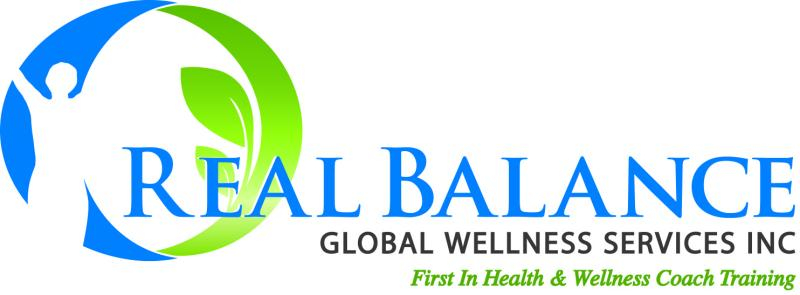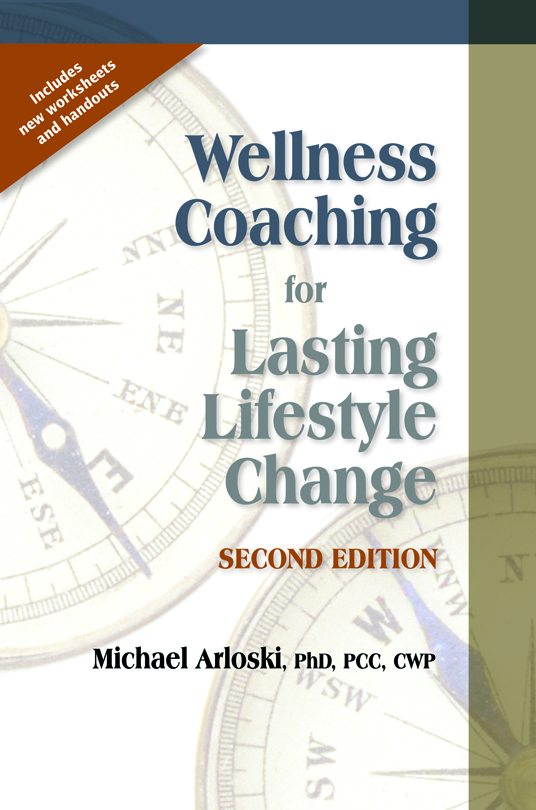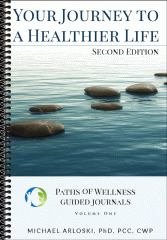Wellness Coaching for Better Sleep, Rest and Immune System Functioning

Adequate sleep and rest are like magic. When we have enough of it our immune system is stronger, healing occurs faster, and very importantly we replenish our supply of energy that allow us to function at our best.
The Mayo Clinic tells us that “During sleep, your immune system releases proteins called cytokines, some of which help promote sleep. Certain cytokines need to increase when you have an infection or inflammation, or when you're under stress. Sleep deprivation may decrease production of these protective cytokines. In addition, infection-fighting antibodies and cells are reduced during periods when you don't get enough sleep.” (https://www.mayoclinic.org/diseases-conditions/insomnia/expert-answers/lack-of-sleep/faq-20057757) The relationship between sleep, adequate rest and our immune system is solid. We’ve all likely had the experience of catching a cold when we fell behind in our sleep.
Today with the Covid-19 Global Pandemic and its accompanying economic hardships many coaches and their clients may have lots to lose sleep over. Anxiety, fear of an uncertain future, seeing infection rates rise, and all of the stress of the ‘functional paranoia’ it takes to stay reasonably safe can all interfere with our sleep. We may also find ourselves cutting back on needed rest during the day as we juggle children at home, adapting to a new work-at-home routine, etc.
While there is no guarantee that a healthy immune system will protect us from a novel virus like Covid-19, we all need the benefits that sleep, and rest will provide. For information on increasing your probability of staying free of infection see https://www.who.int/emergencies/diseases/novel-coronavirus-2019/advice-for-public, and https://www.cdc.gov/coronavirus/2019-ncov/index.html .
A Balanced Wellness Plan
Take a good look at the Wellness Plan that you and your client have co-created. Chances are it will have some fairly active components: becoming more active, eating better, expanding friendship circles, etc. Ask yourself if all the efforts your client is making to improve their lifestyle require an expenditure of energy. Does that same Wellness Plan contain elements that replenish energy? Is their Wellness Plan restorative and regenerative? Is there a balance between these active endeavors, and the more passive and relaxing ones? Essentially, is there a Yin/Yang balance? (See The Tao of Wellness Coaching: Part Two – Practical Applications - https://wp.me/pUi2y-lT )
Perhaps your client would benefit from combining their more active wellness efforts with ones like relaxation training, meditation, Mindfulness Based Stress Reduction, Yoga, or Tai Chi. They may want to include more direct efforts such as effective napping and sleep hygiene strategies.
The Beauty and Benefits of a Good Nap
What do Margaret Thatcher, Barbara Walters, Winton Churchill, Salvador Dali, Thomas Edison, John F. Kennedy, Theodore Roosevelt, Leonardo da Vinci, and Albert Einstein have in common? They are or were all confirmed nappers!
Adequate sleep and rest are important for all of us and especially for our clients with chronic health challenges. Regular napping has multiple health benefits: reducing stress, improving mood, boosting memory, improving job performance and increasing alertness. The Sleep Foundation (https://www.sleepfoundation.org/articles/how-sleep-affects-your-immunity ) suggests “If your sleep schedule is interrupted by a busy workweek or other factors, try to make up for the lost rest with naps. Taking two naps that are no longer than 30 minutes each —one in the morning and one in the afternoon—has been shown to help decrease stress and offset the negative effects that sleep deprivation has on the immune system.”
A key to effective napping is to set an alarm and only nap for 20-30 minutes. That way you can return to full alertness much quicker. Napping is more effective than caffeine at helping us to the same thing. In fact, clients who might have to avoid caffeine for medical reasons might especially find naps more helpful.
Clients who struggle with full-on napping might find that simply allowing their body to go from vertical to some form of horizontal for even short periods of time provides refreshing rest. ‘Putting your feet up’ and closing your eyes while slowing down and deepening breathing may allow for a rejuvenating shift in energy.
Sleep Hygiene
Our client may not know some of the sleep hygiene tips that can make getting to sleep and staying asleep much easier. You can point them in the right direction with resources and have them study these strategies on their own time, perhaps even set up some accountability around doing such homework.
Sleep Hygiene Tips from SleepEducation.org. (http://sleepeducation.org/essentials-in-sleep/healthy-sleep-habits)
Follow these tips to establish healthy sleep habits:
• Keep a consistent sleep schedule. Get up at the same time every day, even on weekends or during vacations.
• Set a bedtime that is early enough for you to get at least 7 hours of sleep.
• Don’t go to bed unless you are sleepy.
• If you don’t fall asleep after 20 minutes, get out of bed.
• Establish a relaxing bedtime routine.
• Use your bed only for sleep and sex.
• Make your bedroom quiet and relaxing. Keep the room at a comfortable, cool temperature.
• Limit exposure to bright light in the evenings.
• Turn off electronic devices at least 30 minutes before bedtime.
• Don’t eat a large meal before bedtime. If you are hungry at night, eat a light, healthy snack.
• Exercise regularly and maintain a healthy diet.
• Avoid consuming caffeine in the late afternoon or evening.
• Avoid consuming alcohol before bedtime.
• Reduce your fluid intake before bedtime. Coaching for Better Sleep and Napping
Coaching for Better Sleep and Napping
Wellness coaching is about helping your client to transform what to do into how to do it in their life. Educating one’s self about the importance of sleep and rest may be the first step, but then putting strategies into action is where coaching can help. If your client sees the value in attempting some of these sleep hygiene strategies or establishing more frequent naps, we can co-create with them agreed upon Action Steps that they are willing to make a commitment to doing. Establishing a way of tracking sleep will help our clients to be consistent in their sleep practices. We can set up a system of accountability with them where they might report in about it at the next coaching session or use text or email to do so.
Once our client is practicing their sleep hygiene habits it is important to explore their experience with it. Look for ways to increase intrinsic motivation by bringing their attention to how they feel when they are practicing these habits. This exploration can also uncover barriers that arise when your client attempt to improve their sleep or get more rest. Coaching Through the Barriers to Healthy Sleep and Rest
Coaching Through the Barriers to Healthy Sleep and Rest
A great coaching technique is to anticipate barriers before they are encountered. As you and your client select sleep strategies to try, ask them if they would anticipate any things that might get in the way of practicing these strategies. Do they share a bedroom with someone else? Would that person be amenable to these new strategies? Perhaps their partner loves having a television in the bedroom and are a fan of late-night TV. The very first step may be to ask your client if they feel that a conversation with their partner about what they are trying to achieve (improved health and wellbeing) and these sleep strategies they hope to use, would be worthwhile.
Other barriers will arise as your client puts their sleep and rest improvement strategies into action. They may get support or push-back. They may discover that their situation at work or home will require some real creativity to develop strategies that can work. You and your client can then engage in some strategic thinking and possibility thinking to tackle these barriers.
Coaching Through Barriers Related to Stress
The ability to rest and sleep can obviously be interfered with by stress and anxiety. Coaching for effective stress management requires knowledge and skills that can be found in my previous blog posts (The Psychophysiology of Stress – What the Wellness Coach Needs to Know. https://wp.me/pUi2y-nJ) and in recordings of my Real Balance Monthly Webinars: 11/16/18 - Stress! Recovery & Resilience: How the Wellness Coach Can Help - Part 1, 1/19/19 - Stress! Recovery & Resilience: Recovery - Part 2 and 2/15/19 - Stress, Recovery & Resilience: Building Resilience - Part 3. (https://realbalance.com/wellness-resources) Adequate sleep and rest help our clients to recover from stress and build resilience. Helping them reduce stress and anxiety in the first place may require some form of relaxation training or other strategies that are discussed in the above resources.
Sleep difficulties, including more severe insomnia, may need to be evaluated by more clinical resources. Since difficulty sleeping and relaxing is a major symptom of both physical and mental/emotional conditions, there may be times when your client’s challenges are more appropriate for clinical treatment than coaching.
Sleep and Rest are Keys to Wellness
Many wellness models include healthy sleep as an essential component of a healthy, well-functioning person. Certainly, it is hard to achieve much of one’s potential when sapped of energy by chronic sleep deprivation. The reality is that people in our modern world are frequently sleep-deprived. “Poor sleep health is a common problem with 25 percent of U.S. adults reporting insufficient sleep or rest at least 15 out of every 30 days.” “Adequate sleep is necessary to: Fight off infection; Support the metabolism of sugar to prevent diabetes; Perform well in school; Work effectively and safely. Sleep timing and duration affect a number of endocrine, metabolic, and neurological functions that are critical to the maintenance of individual health. If left untreated, sleep disorders and chronic short sleep are associated with an increased risk of: Heart disease; High blood pressure; Obesity; Diabetes; All-cause mortality.” (https://www.healthypeople.gov/2020/topics-objectives/topic/sleep-health)
Making adequate sleep and rest part of a holistic Wellness Plan may make a positive difference in all of our client’s wellness goals. Think of it as energy management. With a well replenished energy supply our client can have what they need to be more fully engaged in their health and wellness.
RESOURCES
Healthy People 2020 (2020) Sleep Health. Healthypeople.gov. 2020 Topics and Objectives. https://www.healthypeople.gov/2020/topics-objectives/topic/sleep-health
Olson, Eric J. (2018) Lack of sleep: Can it make you sick? Nov. 28, 2018.
https://www.mayoclinic.org/diseases-conditions/insomnia/expert-answers/lack-of-sleep/faq-20057757
Sleep Foundation (2020). How Sleep Affects Your Immunity. Sleep Foundation.org. July 28, 2020. https://www.sleepfoundation.org/articles/how-sleep-affects-your-immunity

For the very best in wellness and health coach training look to REAL BALANCE GLOBAL WELLNESS SERVICES, INC. Over 10,000 wellness & health coaches trained worldwide. http://www.realbalance.com

For more about effective coaching refer to Wellness Coaching For Lasting Lifestyle Change, 2nd Ed., by Michael Arloski, Ph.D., PCC, CWP, NBC-HWC. https://wholeperson.com/store/wellness-coaching-for-lasting-lifestyle-change.shtml
and to Your Journey to a Healthier Life (Paths of Wellness Guided Journals) by the same author. https://wholeperson.com/store/your-journey-to-a-healthier-life.shtml









Only registered and logged in readers can leave comments.